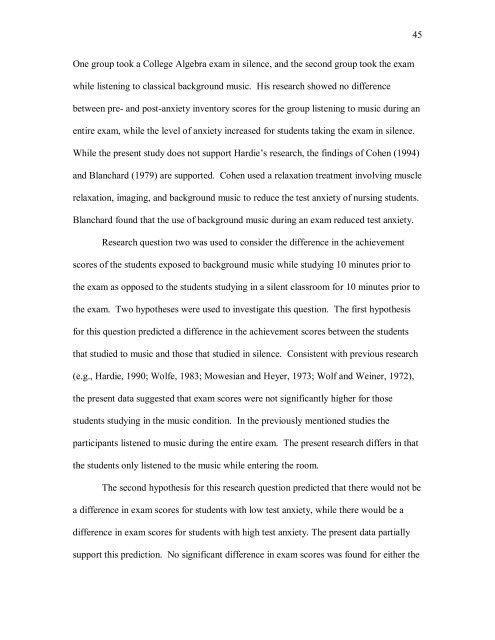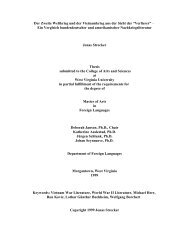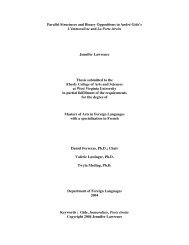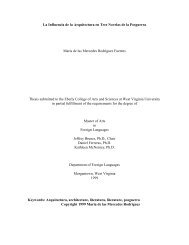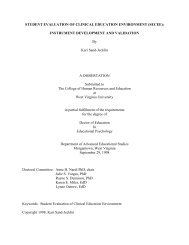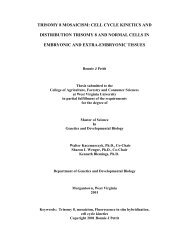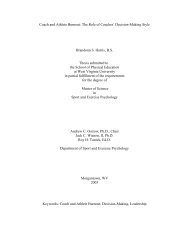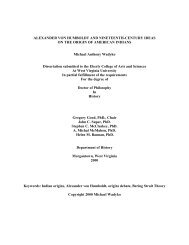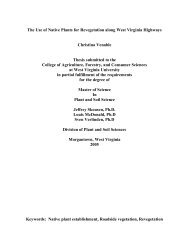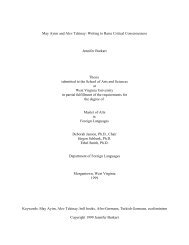The Effect of Background Music on the Mathematics Test Anxiety of ...
The Effect of Background Music on the Mathematics Test Anxiety of ...
The Effect of Background Music on the Mathematics Test Anxiety of ...
You also want an ePaper? Increase the reach of your titles
YUMPU automatically turns print PDFs into web optimized ePapers that Google loves.
45<br />
One group took a College Algebra exam in silence, and <strong>the</strong> sec<strong>on</strong>d group took <strong>the</strong> exam<br />
while listening to classical background music. His research showed no difference<br />
between pre- and post-anxiety inventory scores for <strong>the</strong> group listening to music during an<br />
entire exam, while <strong>the</strong> level <str<strong>on</strong>g>of</str<strong>on</strong>g> anxiety increased for students taking <strong>the</strong> exam in silence.<br />
While <strong>the</strong> present study does not support Hardie’s research, <strong>the</strong> findings <str<strong>on</strong>g>of</str<strong>on</strong>g> Cohen (1994)<br />
and Blanchard (1979) are supported. Cohen used a relaxati<strong>on</strong> treatment involving muscle<br />
relaxati<strong>on</strong>, imaging, and background music to reduce <strong>the</strong> test anxiety <str<strong>on</strong>g>of</str<strong>on</strong>g> nursing students.<br />
Blanchard found that <strong>the</strong> use <str<strong>on</strong>g>of</str<strong>on</strong>g> background music during an exam reduced test anxiety.<br />
Research questi<strong>on</strong> two was used to c<strong>on</strong>sider <strong>the</strong> difference in <strong>the</strong> achievement<br />
scores <str<strong>on</strong>g>of</str<strong>on</strong>g> <strong>the</strong> students exposed to background music while studying 10 minutes prior to<br />
<strong>the</strong> exam as opposed to <strong>the</strong> students studying in a silent classroom for 10 minutes prior to<br />
<strong>the</strong> exam. Two hypo<strong>the</strong>ses were used to investigate this questi<strong>on</strong>. <str<strong>on</strong>g>The</str<strong>on</strong>g> first hypo<strong>the</strong>sis<br />
for this questi<strong>on</strong> predicted a difference in <strong>the</strong> achievement scores between <strong>the</strong> students<br />
that studied to music and those that studied in silence. C<strong>on</strong>sistent with previous research<br />
(e.g., Hardie, 1990; Wolfe, 1983; Mowesian and Heyer, 1973; Wolf and Weiner, 1972),<br />
<strong>the</strong> present data suggested that exam scores were not significantly higher for those<br />
students studying in <strong>the</strong> music c<strong>on</strong>diti<strong>on</strong>. In <strong>the</strong> previously menti<strong>on</strong>ed studies <strong>the</strong><br />
participants listened to music during <strong>the</strong> entire exam. <str<strong>on</strong>g>The</str<strong>on</strong>g> present research differs in that<br />
<strong>the</strong> students <strong>on</strong>ly listened to <strong>the</strong> music while entering <strong>the</strong> room.<br />
<str<strong>on</strong>g>The</str<strong>on</strong>g> sec<strong>on</strong>d hypo<strong>the</strong>sis for this research questi<strong>on</strong> predicted that <strong>the</strong>re would not be<br />
a difference in exam scores for students with low test anxiety, while <strong>the</strong>re would be a<br />
difference in exam scores for students with high test anxiety. <str<strong>on</strong>g>The</str<strong>on</strong>g> present data partially<br />
support this predicti<strong>on</strong>. No significant difference in exam scores was found for ei<strong>the</strong>r <strong>the</strong>


